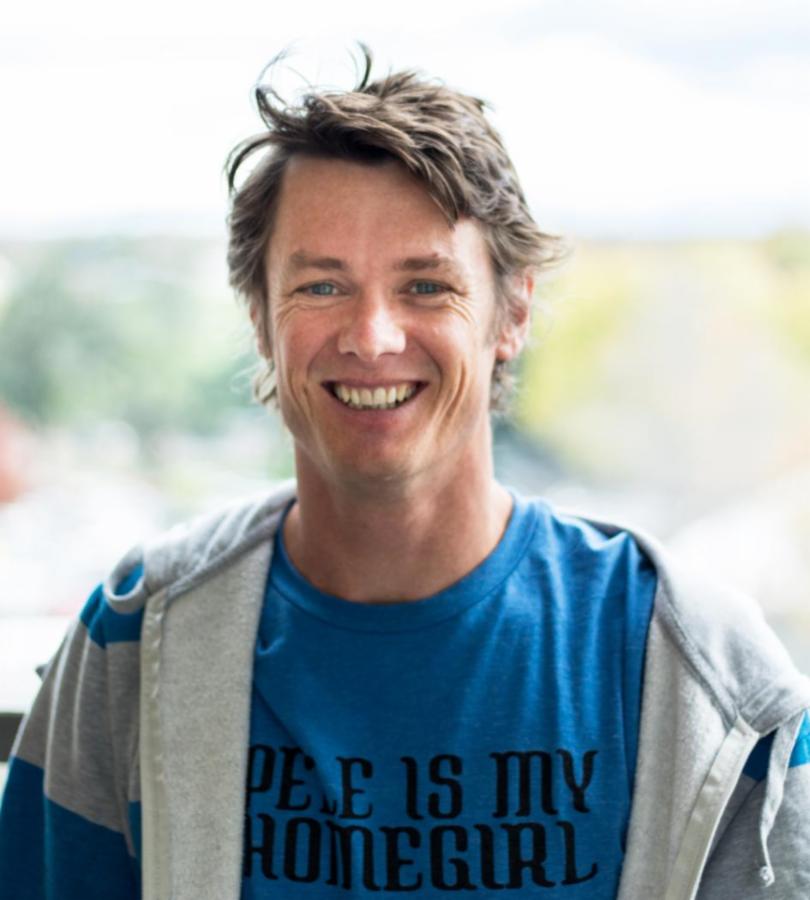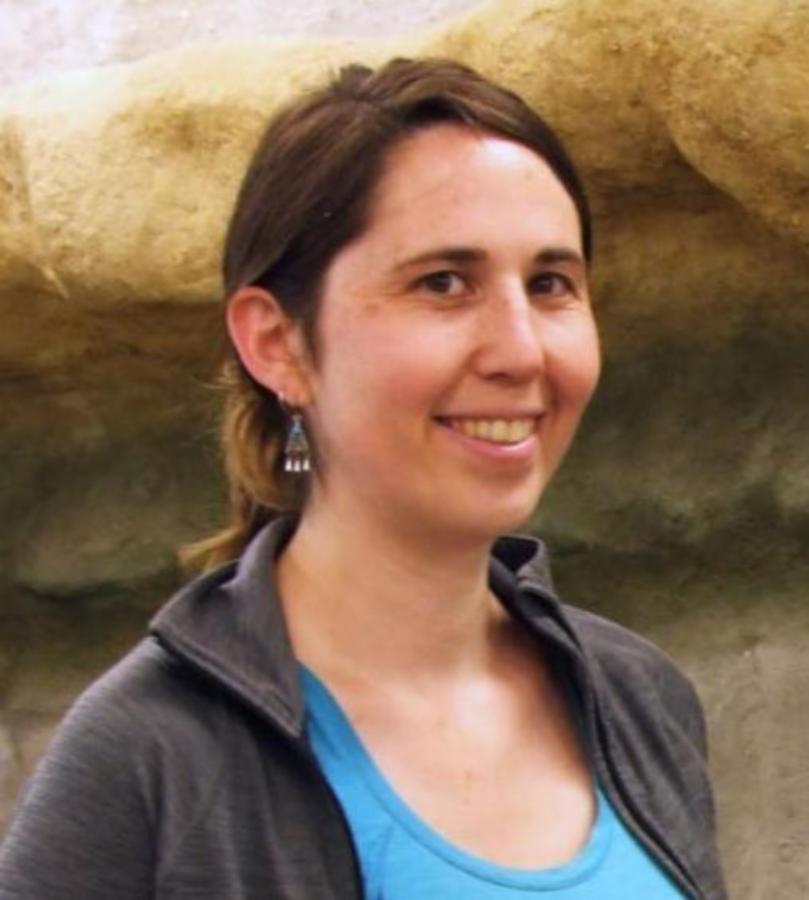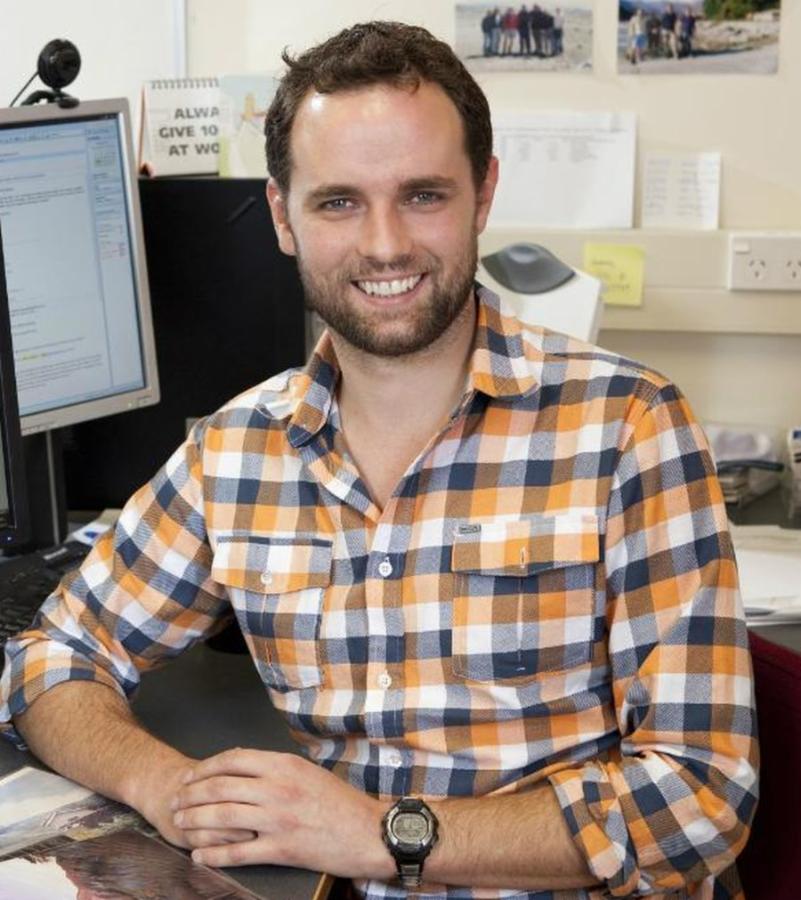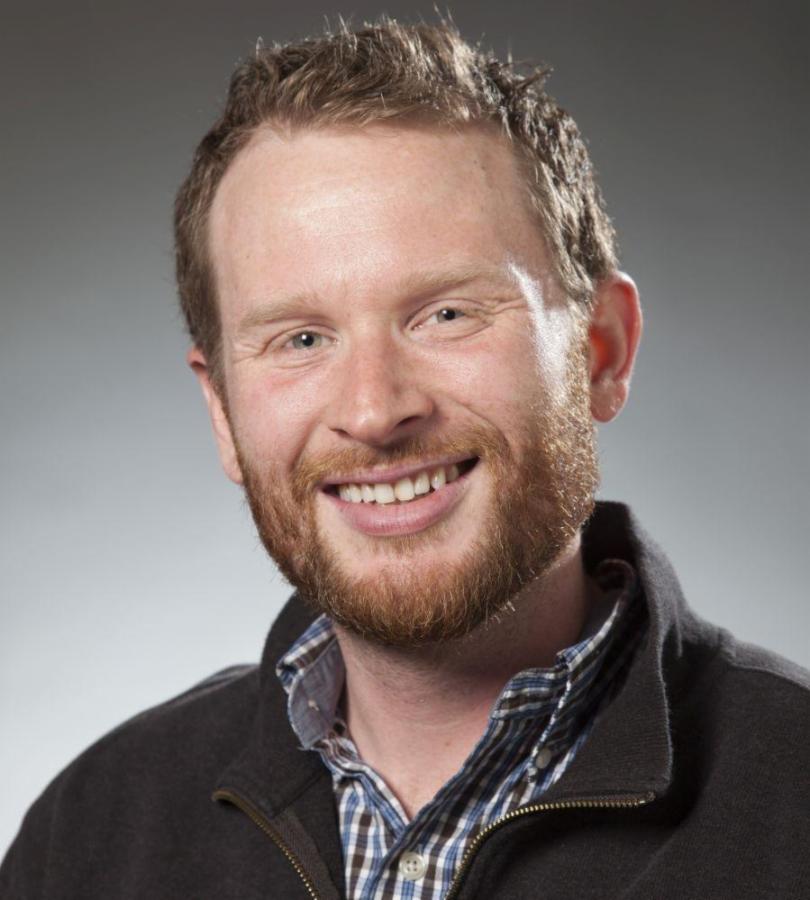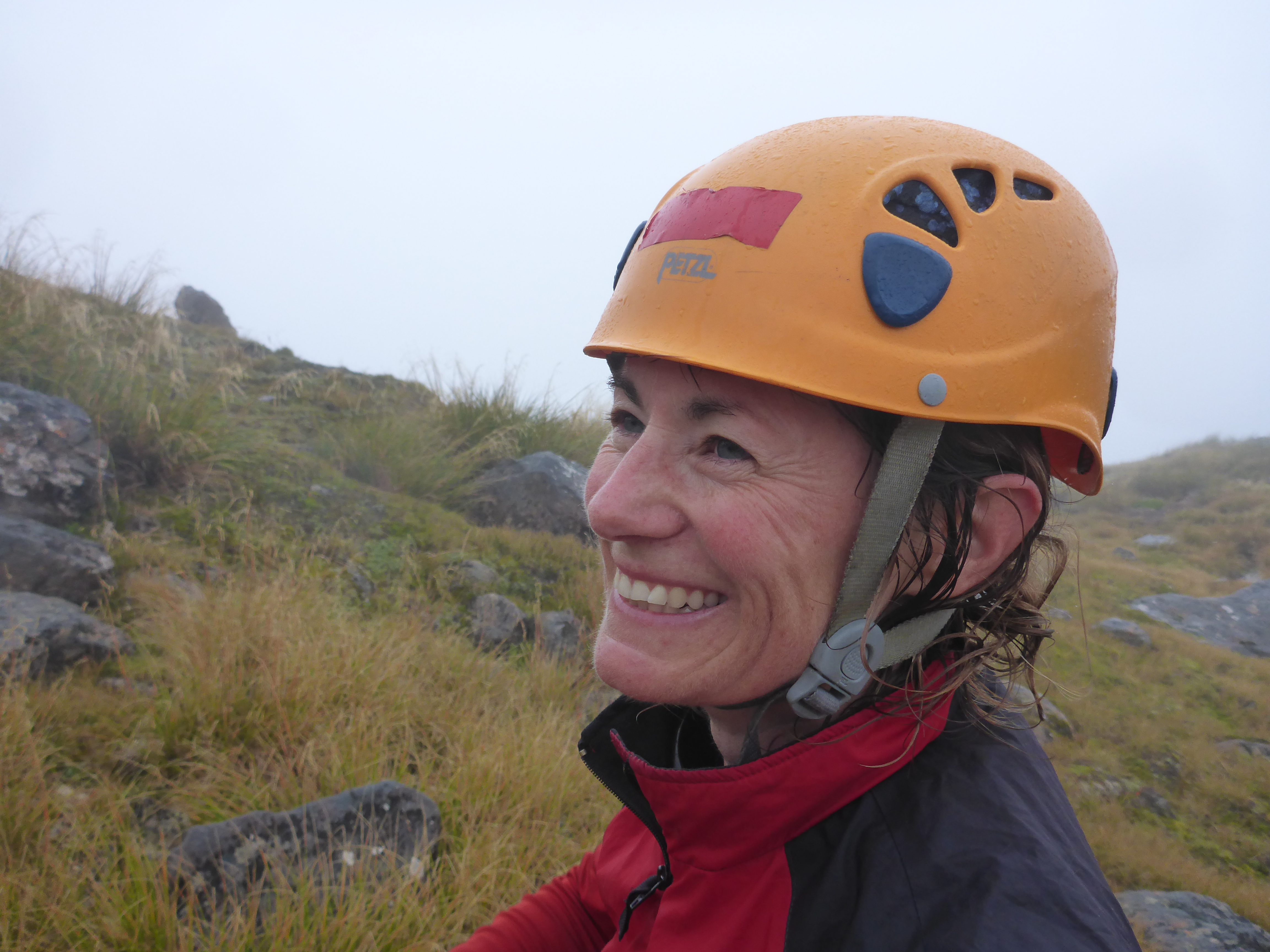In the School of Earth & Environment, we are focused on two main geoscience education objectives: a) investigating better ways to teach, learn and communicate Earth Science information and b) to develop new and innovative classroom activities/resources to enhance the teaching of geoscience (years 5-13) in New Zealand schools. We also offer students the opportunity to actively research and test new methods for learning and communicating through collaborations with the University of Canterbury’s Academic Development Group, the Human Interface Technology Lab, the College of Education and local Secondary Schools in Canterbury. Our schools programme not only provides background support to High School teachers (via UC’s Science Outreach Programme) but at the same time is involved with the design and delivery of curriculum-based initiatives that both empower teachers of science and engage their pupils.
Geoscience is a multidisciplinary subject with physicists, chemists and biologists for example, contributing to its progress. The range of topics covered by geoscience is broad and the associated research focuses on: a) better understanding the origins and evolution of planet Earth and b) answers to questions surrounding increased demands on Earth’s resources, environmental change and natural hazards. The fact we study volcanoes, earthquakes, dinosaurs, valuable minerals, climate change, meteorites, oceans and other planets, means we are in a unique position with respect to initiatives relating to the teaching of science in schools and, engagements with the broader community that provide information about specific events (e.g. earthquakes) or significant, new scientific achievements.
UC Science Outreach Programme:
The school also maintains strong linkages with the University of Canterbury’s Science Outreach Programme, each year our staff contribute to a number of initiatives organised by UC Science Outreach. These include general school visits to UC, topic-specific laboratory sessions, interactive plays, field-trip support and school visits by our staff and post-graduate students. The emphasis of this component of Earth & Environment's Outreach effort is to improve the delivery of Level 9-13 Science especially and to increase the awareness of the relevance of science.
Contributors: Erik Brogt, Ben Kennedy, Jacqueline Dohaney, Thomas Wilson, Alison Jolley, Billy O’Steen
Participating Staff: Kate Pedley, Darren Gravley, Travis Horton, Heather Purdie, and Tim Stahl
Our group performs fundamental and applied research on the teaching and learning of geoscience and geohazards. This research focuses on traditional and innovative geoscience learning activities.
Research Directives
Main goal: Improving tertiary geoscience education practices
- Developing measures to assess teaching best practices and student performance
- Developing interactive and cutting edge curricula
- Improving science communication in graduates
- Improving science communication best practices (for professionals and to the public)
Themes
- Geoscience Curriculum Development
- Geohazards and Risk Education
- Science Communication & Field Skills Research
- Improving Traditional Learning with Interactive Techniques in the Classroom
Collaborators
Our research unit is highly collaborative, and has made links to many NZ and international researchers and organisations:
DEVORA & Jan Lindsay at University of Auckland,
Emma Hudson-Doyle, David Johnston and Carol Stewart from the Joint Centre for Disaster Research at Massey University
GNS Science; Alison Jolley and Graham Leonard
We develop research-informed, learner-centred, and interactive curriculum materials for the classroom, laboratory, virtual, and simulated environments:
Development of a 3D Immersive Field Videogame
The GeoThermal World Videogame (Jacqueline Dohaney, Ben Kennedy, Erik Brogt and Hazel Bradshaw from HITLab NZ)
- 3D, immersive videogame which teachs undergraduates basic field skills in a geothermal context. (video and publication)
- Use in lab context, but can be used for students who cannot access the field.
Interactive Experimental Volcanology Labs
Ben Kennedy runs a collection of hands-on, interactive physical and experimental volcanology labs which are sourced from extant geoscience education and experimental volcanology literature:
Trash Can Volcano Lab (a.k.a., Liquid Nitrogen Bomb)
Students fill a trash can with liquid nitrogen and different sizes of ballistics. This experiment illustrates the different input parameters which control explosivity and ballistic dispersal. Original research published by Karen Harpp, Alison Koleszar and Dennis Geist (see publication and video)
Mentos and Coke Explosions
Students add mentos candy to a bottle of diet coke simulating a CO2 eruptive plume. Experiments can be run under differing input variables (type of candy, type of beverage and shape of the vent) to understand the height and duration of explosive eruptions. Original research by Wright, Rust, and Cashman (see publication and video)
Lava Fudge Experiment Lab
Students make chocolate fudge with differing temperatures and weight % sucrose to simulate differing levels of viscosity in aa and pahoehoe lavas. Original research by Alison Rust, Cathy Cashman and Wright (see publication)
M&M Magma Chamber Labs
Students build layers in a magma chamber by calculating the number of major elements (M&M’s) needed to form common minerals and following typical fractional crystallization pattern. Original research by Karl Wirth (see publication)
Teaching Independent Research & Synthetic Thinking Skills in Earth Systems Science
- Travis Horton is running a Semester long teaching strategy which aims to develop students' abilities to understand geoscience as a system and use synthetic (i.e., holistic) thinking skills.
- Students are asked to perform authentic research; modelling complex research questions in small groups
Group Work in Mineralogy & Petrology Labs
- Jacqueline Dohaney and Ben Kennedy teach evidence-based research to design and implement group work curricula in mineralogy and petrology labs.
- Research was carried out in collaboration with UBC and the Carl Wieman Science Education Initiative (see publication).
Publication
Successful Curriculum Development and Evaluation of Group Work in an Introductory Mineralogy Laboratory
The Canterbury earthquakes have generated massive public interest in the geosciences, geohazards, and the communication of these disciplines. Our research group has worked to develop curricula that train undergraduates, postgraduates and professionals how to work together to communicate effectively and mitigate the impacts that disasters have on communities. What is the chance of it happening? And what will the impact be? These are two fundamental questions a geohazards and risk scientist will be asked. But geohazards and risk assessment often has to be made using data which has large uncertainties associated with it and from multiple disciplines (e.g., physical science, social science, engineering, etc.). How this material should be presented to stakeholder to optimise their decisions making is the focus of research Current research focus on the most effective way to communicate research to stakeholders.
Projects:
Communicating Complex Hazard and Risk Assessments – Curricula Development
Contributors: Thomas Wilson, Erik Brogt, Samuel Hampton, Tim Davies and Mark Quigley
Communicating geohazards, risk and disaster science to non-experts can be a challenging and daunting prospect for hazard scientists, engineers and emergency managers. The Hazard and Disaster Management programme at UC trains students to communicate complex research and geohazards issues using strategies and tools used in real world emergency management and disaster risk reduction.
- Media conferences where HAZM students are tasked to prepare for and present in front of the media on a challenging and highly uncertain geohazard issue, such as a volcano which has become restless and may erupt soon. The media (media studies and journalism students, which include some real journalists) question and attempt to extract a sensationalist news story.
- Students are trained to write 'policy briefs' for government ministers. Senior Policy Analysts and Advisors from government ministries in Wellington (New Zealand seat of Government) lead these interactive sessions, sharing their hard won lessons.
- Throughout all classes there is a focus on working together in a team under a difficult deadline to produce the necessary information to inform a hazard or disaster relation issue for a decision maker.
Tongariro & Auckland Volcanic Hazards Simulations
Contributors: Jacqueline Dohaney, Erik Brogt, Ben Kennedy, Thomas Wilson, Darren Gravley, and Jan Lindsay (Auckland University)
- Development of highly challenging and engaging geology training simulations for 3rd-4th year undergraduates and postgraduates.
- Simulations require students to synthesize complex data sets and provide real-time advice in order to minimize impacts from major geologic events.
- Tests students practical and transferable skills. Specifically: communication and teamwork skills
- New customized simulations are in development using Avalance TTX™ software (Dohaney in collaboration with UCR3; Publication)
Lecture-based Capstone Collaborative Hazards Exercises
Contributors: Alison Jolley, Thomas Wilson, Erik Brogt, Ben Kennedy
- Five 1-hour group exercises were developed for GEOL113 (Environmental Geohazards) to teach first-stage students the basics of earthquakes, volcanoes, land slides, tsunami, geohazards and society.
- Exercises are end of module, capstone activities
- Groups of students work together to apply the concepts learned in lectures
Exercise Te Ripahapa
Contributors: Tom Robinson, Thomas Wilson and Tim Davies
- Exercise Te Ripahapa is an authentic emergency management simulation which can be used to teach professionals the impacts of a large scale (Alpine Fault earthquake)
- The simulaton highlights the impacts on people, lifelines and the landscape due to such a large event.
In today’s academic and professional workplace, geologists need to master field and transferable skills (i.e., skills that are used in diverse and every day settings). Our research group studies the best way to teach (and measure) these skills.
Some important geoscience transferable skills include:
Field Skills – observations, note-taking, interpretation, synthesis
“Soft skills” – teamwork, communication, decision-making, critical thinking, problem-solving
Science Communication Skills Research; “Improving Science Communication Skills”
Contributors: Erik Brogt, Jacqueline Dohaney, Thomas Wilson and Ben Kennedy
Funded by: Ako Aoteoroa
- Current research is aimed at developing scenario-based curricula which specifically targets students communication skills.
- Development of measures and methods to assess science communication.
- Collaborative project with emergency management and science communication researchers across NZ.
Field Skills Research
Contributors: Jacqueline Dohaney and Ben Kennedy
- Research aimed at understanding how geologists teach and learn basic field skills such as observations and note-taking.
- Development of best practices of observations and note-taking in geology.
- We are also looking at digital note-taking research (Jacqueline Dohaney in collaboration with Lawrence Malinconico, Lafayette College).
Experiential Capstone Field Trips
- On-going development and assessment of the Frontiers Abroad field programme (Darren Gravley, Sarah Smithies)
- 6-week field trips which incorporate interactive, holistic and capstone teaching techniques
- Cutting edge, independent semester long undergraduate research projects.
Implementing the Carl Wieman Science Education Initiative in the New Zealand tertiary
Collaborators: Zoe Jordens, Rosie Bradshaw, Maggie Hartnett, Gemma Cartwright and Natalie Burr (from Massey University)
- Use of clickers, and other interactive technology in the classroom to transform traditional (passive) lectures to make them more interactive and engaging.
Funded by Ako Aotearoa.
context (Ben Kennedy, Erik Brogt, Alison Jolley, Billy O’Steen, Eva Hartung and Annie Soutter)
Dohaney, J. Brogt, E., Kennedy, B. (In review) Field Note-taking Behaviour and Perceptions: Towards Classification and Best Practices.
Jolley, A., Jones, F., and Harris, S. 2013. Measuring student knowledge of landscapes and their formation timespans. Journal of Geoscience Education, 61(2):240-251. http://nagt-jge.org/doi/abs/10.5408/12-307.1
Dohaney, J., E. Brogt, and B. Kennedy. (2012). Successful Curriculum Development and Evaluation of Group Work in an Introductory Mineralogy Laboratory. Journal of Geoscience Education, 60:1, pp. 21-33. DOI: 10.5408/10-212.1
http://www.nagt-jge.org/doi/pdf/10.5408/10-212.1
Jolley, A., Lane, E., Kennedy, B., and Frappé-Sénéclauze, T-P. (2012). SPESS: A New Instrument for Measuring Student Perceptions in Earth and Ocean Science. Journal of Geoscience Education, 60:1, 83-91. DOI: 10.5408/10-199.1
Link: http://nagt-jge.org/doi/pdf/10.5408/10-199.1
Kennedy, B. and Frappé-Sénéclauze, T-P. (2010) Attitude Surveys in Earth and Ocean Science. In D.A. Cancilla and S.P. Albon (Eds.), Moving the Laboratory Online: Situating the Online Laboratory Learning Experience for Future Success: 89-104. Newburyport: The Sloan Consortium.
Reports & Magazine Articles
Kennedy, B., Brogt, E., Jordens, Z., Jolley, A., Bradshaw, R., Hartnett, M., O’Steen, B., Hartung, E., Soutter, A., Cartwright, G. and Burr, N. (2013) Transforming Tertiary Science Education: Improving learning during lectures. Ako Aotearoa, National Centre for Tertiary Teaching Excellence. 32pp.
Link: https://akoaotearoa.ac.nz/download/ng/file/group-4263/transforming-tertiary-science-education-project-report.pdf
Kennedy, B., Brogt, E. and Dohaney, J. (2012) Geoscience education at the University of Canterbury. Geoscience Society of New Zealand Newsletter 8: 34-36. Newsletter Article.
Conference Proceedings
Dohaney, J., Kennedy, B., Brogt, E., and Bradshaw, H. (2012). The Geothermal World Videogame: An Authentic, Immersive videogame used to teach observation skills needed for exploration. New Zealand Geothermal Workshop Proceedings, 19-21 November 2012, Auckland New Zealand. (Full conference paper)
Kennedy, B., Brogt, E., Jolley, A., Hampton, S. and Wilson, T. (2013). Shaking up an introductory geohazards course. Christchurch, New Zealand: Geoscience Society of New Zealand Annual Conference (GSNZ), 24-27 Nov 2013. (Oral presentation)
Dohaney, J., Brogt, E., Wilson, T. and Kennedy, B. (2013). Teaching geoscience with simulation: Scenario-based role-plays. Christchurch, New Zealand: Geoscience Society of New Zealand Annual Conference (GSNZ), 24-27 Nov 2013. (Oral presentation)
Dohaney, J., Brogt, E., Kennedy, B. and Wilson, T. (2013). Using role-play to improve science communication efficacy in students. Denver, CO, USA: Geological Society of America annual meeting, 27-30 Oct 2013. (Oral presentation)
https://gsa.confex.com/gsa/2013AM/finalprogram/abstract_227689.htm
Brogt, E., and Dohaney, J. (2013) Teaching Hazards and Disaster Communication: Theory and Practice. PCST/SCANZ Symposium 2013: Disasters – Communicating in the Crisis and the Aftermath. Science Communicators Association of New Zealand. Christchurch, New Zealand. (Oral presentation)
url link: http://www.scanz.co.nz/erik-brogt-and-jackie-dohaney-presentation.html.
Kennedy, B. and Brogt, E. (2013) Transforming tertiary science education: Improving learning during lectures. Auckland, New Zealand: Higher Education Research and Development Society of Australasia Conference 2013 (HERDSA), 1-4 Jul 2013. (Oral presentation)
Dohaney, Jacqueline, Brogt, E., Kennedy, Ben. (2012) Teaching Geology with 21st Century Techniques. GeoNZ 2012 Conference, Hamilton, New Zealand. Geoscience Society of New Zealand Miscellaneous Publications. (Oral presentation)
Kennedy, B. and Brogt, E. (2012) Improving learning in undergraduate geology. Hamilton, New Zealand: Geoscience Society of New Zealand Annual Conference (GSNZ), 25-28 Nov 2012. (Oral presentation)
O'Steen, B., Jolley, A., Kennedy, B., Brogt, E., Bradshaw, R. and Jordens, Z. (2011). Champagne quality curriculum development on a beer budget? Data, collaboration and departmental buy in are key to the curriculum development process. Victoria University of Wellington, New Zealand: Tertiary Education Research in New Zealand (TERNZ 2011), 23-25 Nov 2011. (Oral presentation)
Jordens, Z., Hartnett, M., Bradshaw, R., Jolley, A., O’Steen, B., Brogt, E., & Kennedy, B. (2011). Measuring student learning and classroom engagement using evidence-based research to encourage science lecturers to reconsider how they teach. Tertiary Education Research in New Zealand Conference. November 23-25, Wellington, New Zealand (Oral presentation)
Brogt, E., Liggett, D., Pedley, K., Jolley, A. and Kennedy, B. (2011). Curriculum and assessment changes in a disaster scenario. Victoria University of Wellington, New Zealand: Tertiary Education Research in New Zealand (TERNZ 2011), 23-25 Nov 2011. (Oral presentation)
Dohaney, J., Powell, T., Gravley, D.M. and Kennedy, B. (2010). The Geothermal Game: An authentic, problem-based simulation used to teach geothermal energy exploration and exploitation concepts. Denver, CO, USA: Geological Society of America Annual Meeting (GSA), 31 Oct-3 Nov 2010. In Geological Society of America Abstracts with Programs 42(5) 497. (Oral presentation)
https://gsa.confex.com/gsa/2010AM/finalprogram/abstract_182059.htm
Jolley, A., Jones, F., Harris, S., and Rhajiak, J. 2011. Correlating knowledge of landscape formation timescales and geologic time using a new validated concept test. Geological Society of America Abstracts with Programs, 43(5):183. Minneapolis, MN. (Oral presentation) https://gsa.confex.com/gsa/2011AM/webprogram/Paper195482.html
Kennedy, B., Brogt, E., & O’Steen, B. (2010). Transforming tertiary science education in New Zealand (with the help of Carl Wieman). Spotlight on Tertiary Teaching in Canterbury and Beyond. March 26, Christchurch, New Zealand (Oral presentation).
Kennedy, B., Gilley, B. and Frappe, T-P. (2008). Does Earth and Ocean Sciences Change How Students See the World? Assessing How Earth and Ocean Sciences Courses Affect Student Attitudes. Houston, TX, USA: Geological Society of America Joint Annual Meeting, 5-9 Oct 2008. In Geological Society of America Abstracts with Programs 40(6) 495. (Oral presentation)
https://gsa.confex.com/gsa/2008AM/finalprogram/abstract_152248.htm
Jolley, A., and Ayala, G. 2013. “Living with volcanoes”: geoarchaeology in the high school classroom. Geological Society of America Abstracts with Programs, 45(7):314. Denver, CO. (Poster presentation) https://gsa.confex.com/gsa/2013AM/webprogram/Paper224945.html
Dohaney, J.; Kennedy, B.; Brogt, E.; Gravley, D.; Wilson, T.; O'Steen, B. (2011). The Volcanic Hazards Simulation: Students behaving expert-like when faced with challenging, authentic tasks during a simulated Volcanic Crisis. American Geophysical Union, Fall Meeting 2011, San Francisco, California, U.S.A. Abstract #ED31A-0731 (Poster presentation)
http://adsabs.harvard.edu/abs/2011AGUFMED31A0731D
Jolley, A., Harris, S., and Bevier, M.L. 2011. Tracking student progress with a mineralogy/petrology concept inventory. Carl Wieman Science Education Initiative End of Year Event. Vancouver, BC. (Poster presentation) http://www.cwsei.ubc.ca/Files/EOY/EOY2011/Posters/Jolley_Harris_Bevier_TrackingProgress.pdf
Dohaney, J., Kennedy, B., Borella, M.W., Hamilton, C. and Gravley, D.M. (2010) Volcanic hazards simulation: a collaborative role-play exercise using multiple synchronous time series datasets to perform volanic forecasting and hazard management. Denver, CO, USA: Geological Society of America Annual Meeting (GSA), 31 Oct-3 Nov 2010. In Geological Society of America Abstracts with Programs 42(5) 124. (Poster presentation)
https://gsa.confex.com/gsa/2010AM/finalprogram/abstract_181995.htm
Jolley, A. 2010a. Identifying landscapes and their formation timescales: comparing knowledge and confidence of beginner and advanced geoscience undergraduate students. Carl Wieman Science Education Initiative End of Year Event. Vancouver, BC. (Poster presentation) http://www.cwsei.ubc.ca/Files/EOY/EOY2010/Posters/Jolley_IdentifyingLandscapes&FormationTimescales.pdf
Jolley, A. 2010b. Landscape identification and formation: the development of a test to measure student knowledge and confidence. Western Inter‐University Geosciences Conference. Saskatoon, SK. (Poster presentation) https://ocs.usask.ca/ocs/index.php/wiugc/wiugc2010/paper/view/199
Dohaney, J. (2009). Successful Group Work in an Introductory Mineralogy Lab Setting, Geological Society of America Abstracts with Programs, Vol. 41, No. 7, p. 92. (Poster presentation)
https://gsa.confex.com/gsa/2009AM/finalprogram/abstract_161496.htm
Jolley, A., and Lane, E. 2009. A new tool for investigating undergraduate attitudes about earth science. Geological Society of America Abstracts with Programs, 41(7):94. Portland, OR. (Poster presentation) https://gsa.confex.com/gsa/2009AM/finalprogram/abstract_164998.htm
Kennedy, B., Jones, F., Stull, R., Harris, S., Gilley, B., Frappe, T., and Wieman, C. (2008) Maximizing Student Learning in an Introductory Level Natural Disasters Class. National Association of Geoscience teachers – Pacific Northwest Section Annual Meeting, Yakima, Washington. (Poster presentation)
Postal Address
Geoscience Education Research Group
School of Earth & Environment
University of Canterbury
Private Bag 4800
Christchurch 8140
New Zealand
Contributors
Significant contributions to our research have come from Ako Aotearoa (National Centre for Tertiary Teaching Excellence), Mighty River Power Ltd, and from the Univerisity of Canterbury’s “Teaching Development Grants”.



People


